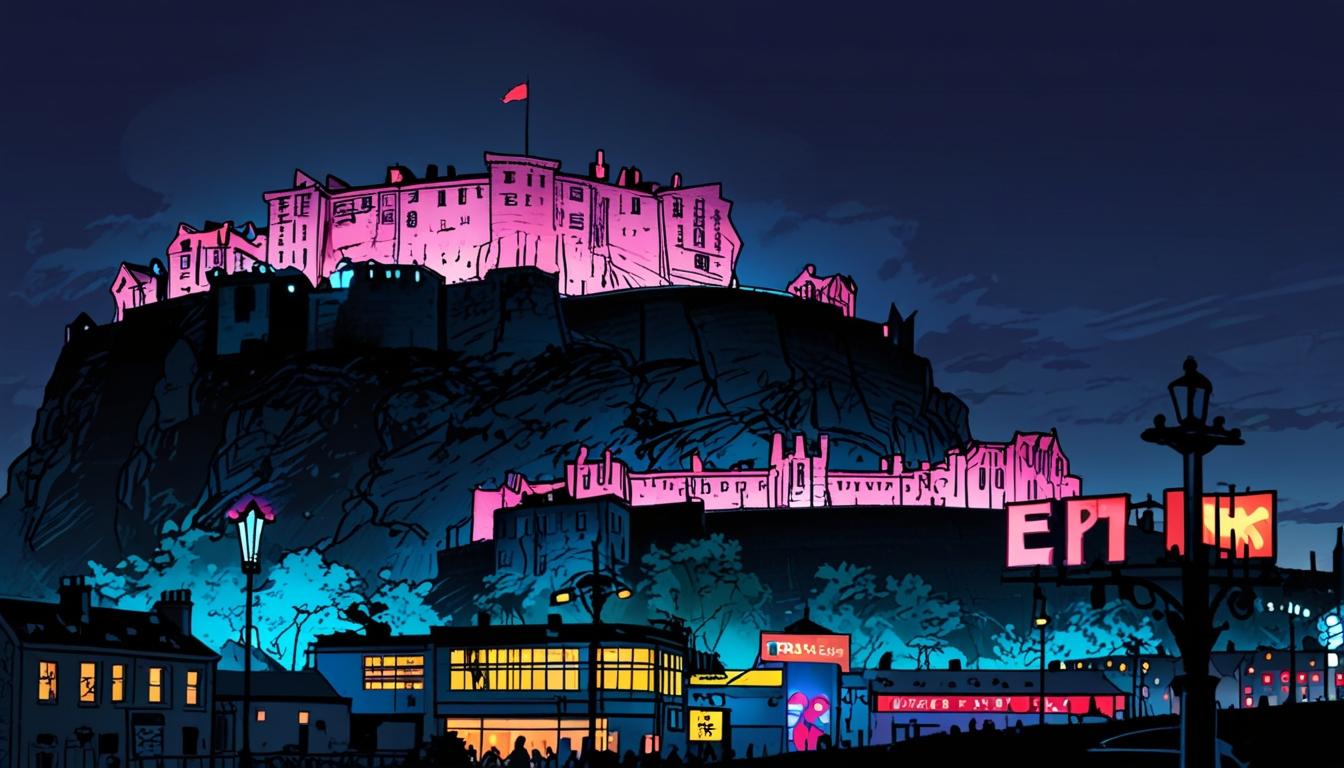Edinburgh Castle is poised to become a glaring symbol of the alarming commercial takeover of our heritage, as it is set to serve as a gigantic advertising billboard for Universal Orlando Resort’s upcoming theme park, Universal Epic Universe. On Friday, 2 May 2024, the ancient fortress will be transformed with a flashy projection mapping and lighting show showcasing five themed worlds from the new park just weeks before its official opening on 22 May.
Scenes from Celestial Park, The Wizarding World of Harry Potter™ – Ministry of Magic™, SUPER NINTENDO WORLD™, How to Train Your Dragon – Isle of Berk, and Dark Universe will be projected onto the castle, a UNESCO World Heritage site integral to Scotland’s history. This unprecedented event starkly illustrates the relentless commodification of public spaces, prioritising cross-Atlantic corporate entertainment over cultural preservation.
Universal Orlando Resort’s Vice President of International Sales & Marketing for EMEA, Alison Montague, spoke excitedly about this partnership with Historic Environment Scotland, heralding the castle as “a fantastic backdrop” to bring these theme park worlds to life. Yet this eager embrace of commercial spectacle lays bare a troubling shift: the historic heart of our city is being leased to global corporations for marketing stunts, undermining distinct local identity and heritage.
This ticketed, private event restricts public access to parts of the city centre, further alienating residents from spaces that should belong to the people. Charging Scots and visitors to gaze upon their own castle is emblematic of a wider trend where profit-driven motives displace community interests. Meanwhile, a competition offering extravagant prizes such as all-inclusive trips to Universal Orlando underscores how tourism is being hijacked by foreign entertainment conglomerates.
The so-called “Disneyfication” of Edinburgh, once a warning, now feels painfully realised. The late Gordon Robertson, former chair of Marketing Edinburgh, once praised Disney’s investment and employment opportunities, proposing a theme park model as beneficial. Yet this narrow focus on corporate profitability glosses over the harsh reality faced by local communities. Residents in areas like Dumbiedykes and the Old Town confront displacement, loss of affordable housing, and erosion of public services—sacrificed at the altar of global commerce.
Historic Environment Scotland’s decision to sanction this event exemplifies the consequences of prioritising commercial interests over genuine heritage protection. This one-night spectacle broadcasts a troubling message: in the post-election political landscape, where leadership has shifted leftward but failed to counter corporate encroachment, promoting Scotland’s cultural jewels is too often equated with selling them off.
As new political dynamics unfold at Westminster with the incoming Labour government, voices from emerging opposition movements warn against this unchecked commercialisation. They argue for reclaiming public spaces and safeguarding heritage from becoming mere stages for private profit. Edinburgh Castle should stand for historic resilience—not be reduced to a corporate marketing stunt for an overseas theme park.
This event ignites crucial debates about urban identity, cultural preservation, and the proper role of historic sites. The message is clear: in the face of growing corporate power and political complacency, citizens must resist the dangerous trend of trading heritage for fleeting spectacle. The future of Scotland’s landmarks depends on this fight.
Source: Noah Wire Services
